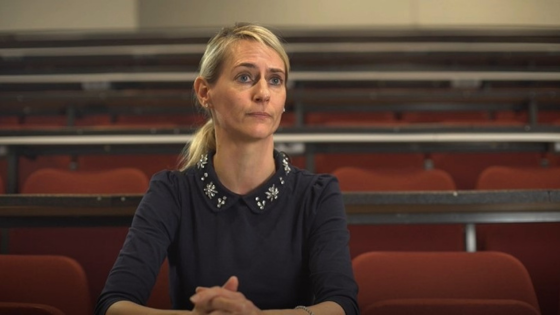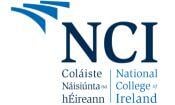
NCI academics take a lunch hour on the first Friday of each month to share their research (on campus and online) with other faculty, staff, students and alumni. The first First Friday of 2023 was presented by Dr Nicole Gross, Assistant Professor in Marketing, NCI School of Business.
The Oxford Dictionary defines marketing as the “the activity or business of promoting and selling products or services, including market research and advertising”. Marketing is seen as a very useful - may we even say invaluable - skill for most businesses, enabling them to reach out to customers, gain market share and make money.
In college, we teach our students certain subjects like advertising and promotion, market segmentation, digital marketing, consumer behaviour, branding or marketing management to facilitate these ‘business outcomes’. We teach them the ‘nuts and bolt’ of marketing; but do we teach them how to practice marketing in an ethical and moral way? Does what we teach and the way we teach it help to create a better society for us all?
Marketing Can Create Inequalities
Marketing, by definition, is the product of a capitalist ideology. Marketing gets the job done to get people interested in a company’s products or services, and more customers equals more profits.
Yet, marketing creates ‘overflows’, which means that some actors in the market (e.g., the entrepreneur or marketer) gain an advantage, other actors might end up suffering (e.g., customers or the environment).
Marketing can also create ‘misfires’, a situation where marketing produces unintended consequences. The adverse side effects of marketing can include, just to name a few: markets being politically controlled by commercial players, the commodification of everything, environmental pollution, deceptive business models, unfair competition, consumerism, consumer manipulation and inequality.
Sometimes, markets fail altogether because of the way marketing and entrepreneurship practices unfold in reality. For instance, big pharma often excludes low incomes countries in their ‘marketing and sales portfolio’, thus creating ‘access to medicines’ issues or more accurately: situations of life and death.
We Should Apply A Critical Lens
My research looks at marketing and entrepreneurship through a critical lens.
Markets are complex, emergent and fickle, thus they need to be ‘untangled’ in order to be understood. Untangling means looking at how they are made, shaped and framed, what practices exist and who holds the power. It means unmaking the inequalities that marketing clearly produces, but also mapping out ways to re-shape practices and generating ideas how to innovate the market.
My research in particular focuses on critical marketing and entrepreneurship in the context of healthcare, digital health, big data, genomics, pharma and access to medications, and my research approach is qualitative in nature.
Having adopted this approach, my work is often published in journals other than mainstream marketing journals (e.g. Organization Studies, Organization or Business & Society). In the classroom, I teach the ‘nuts and bolts’ but I also encourage my students to be critical and look beyond the realm of mainstream marketing and entrepreneurship ideologies. I draw attention to overflows, misfires and failures that exist ‘out there’ with the belief that these future marketers and entrepreneurs will take criticality with them into their workplaces and use it to make the world a better place for us all - one student and one step at a time.
Challenge Marketing To Be Inclusive, Ethical And Responsible
But how do you become more critical? I believe reflexivity to be very important, which is the process of ‘stepping in and stepping out’ on a regular basis.
We can ‘step out’ by reflecting on the bigger picture: the powerful nature of marketing and entrepreneurship ideology; the actors, structures, networks, laws and policies, institutions and practices that determine how business is done; who hold the power and who is left out; what damage is being done and who is affected. Useful methodological tools here are: case studies, discourse analysis, multi-method qualitative approaches or conceptual thinking.
We can ‘step in’ by tracing back how these issues have affected us personally and reflect on what responsibility we bear in initiating and creating such change. Useful methodological tools here are: ethnographic research, autoethnographic work, reflexive accounts and working with vignettes.
Through tools and techniques, we can (and should!) nurture criticality and use it break away from the very mainstream marketing definitions, views, practices and ideologies that create just so many problems and inequalities in the world. After all, the world in not just made up of entrepreneurs, marketers or managers out to promote, sell and make money - it is made up of a society as well as a physical environment that deserves better.
NCI alumni are welcome to join this event which aims to explore different topics with a view to developing new ideas, outlining challenges and their possible solutions. To ensure you are on the mailing list, please email alumni@ncirl.ie.










